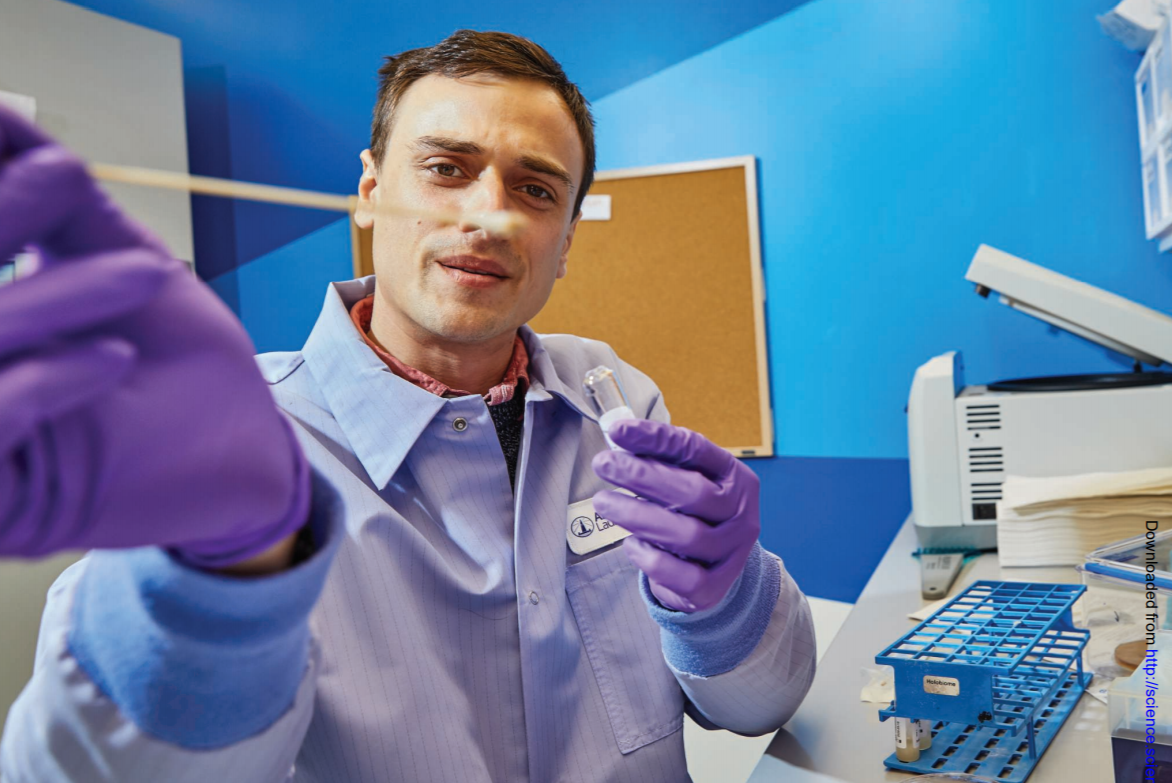每日外闻98

接着上一篇聊:
流行病学研究人员发现了肠道和大脑疾病之间有趣的联系。例如,许多患有肠易激综合症的人也很抑郁,患有自闭症的人往往有消化问题,患有帕金森综合症的人容易便秘。
研究人员还注意到,服用抗生素的人抑郁症状有所增加,但服用抗病毒或抗真菌药物的人抑郁症状没有增加-因为抗病毒或抗真菌药物不会对肠道细菌造成伤害。有学者的研究报告指出,患有抑郁症的人(在他们的两个地区的超过1000人的样本)中存在两种肠道细菌的缺陷。
研究人员发现有些肠道微生物可能会分泌一些信号分子,通过血液到达大脑,影响大脑的生理机能。有的细菌可能还会刺激迷走神经-迷走神经丛大脑一直延伸到腹部的器官。细菌分子可能通过最近发现的位于肠道内壁的“ neuropod”细胞向迷走神经传递信号,感知肠道的生化环境,包括微生物化合物。每个细胞都有一个向外延伸的长足,与附近的神经细胞(包括迷走神经细胞)形成突触状连接。
肠道和大脑也勋在间接的联系。肠道细菌是免疫系统正常发育和维持的关键,研究表明,错误的微生物组合会破坏这一过程,并引发炎症。微生物产物可能会影响肠内内分泌细胞,肠内内分泌细胞位于肠道内壁,释放激素和其他肽。其中有些细胞帮助调节消化和控制胰岛素的产生,但它们也释放神经递质血清素,血清素从肠道中释放,并在全身传播和发挥作用。
有很多研究已经给出的结论支持了肠道微生物可以影响大脑的观点。从患有精神疾病如抑郁症的人取粪便移植给老鼠,老鼠也会表现出类似精神疾病的行为。相反,给这些患有精神疾病的老鼠移植正常人的粪便,则会缓解他们的症状。小老鼠如果体内某些微生物缺失也会影响其成年后对压力的反应,其他小鼠研究也指出了微生物在神经系统发育过程中的作用。
有实验室发现,微生物或人体自身的细胞可以将色氨酸转化为血清素,这是一种与抑郁症和其他精神疾病有关的神经递质。细胞还会把色氨酸转化成一种叫犬尿氨酸的物质,这种物质会进一步反应生成对神经元有毒的物质。微生物组的变化可能会以损害精神健康的方式影响这些不同物质的产生。例如,研究表明,抑郁症患者更易于将色氨酸转化为犬尿氨酸,而不是转化为血清素。
Epidemiological researchers have turned up intriguing connections between gut and brain disorders. For example, many people with irritable bowel syndrome are also depressed, people on the autism spectrum tend to have digestive problems, and people with Parkinson’s are prone to constipation.
Researchers have also noticed an increase in depression in people taking antibiotics—but not antiviral or antifungal medications that leave gut bacteria unharmed. Last year, Jeroen Raes, a microbiologist at the Catholic University of Leuven, and colleagues analyzed the health records of two groups—one Belgian, one Dutch—of more than 1000 people participating in surveys of their types of gut bacteria. People with depression had deficits of the same two bacterial species, the authors reported in April 2019 in Nature Microbiology.
Researchers see ways in which gut microbes could influence the brain. Some may secrete messenger molecules that travel though the blood to the brain. Other bacteria may stimulate the vagus nerve, which runs from the base of the brain to the organs in the abdomen. Bacterial molecules might relay signals to the vagus through recently discovered “neuropod” cells that sit in the lining of the gut, sensing its biochemical milieu, including microbial compounds. Each cell has a long “foot” that extends outward to form a synapselike connection with nearby nerve cells, including those of the vagus.
Indirect links may also exist. Increasingly, researchers see inflammation as a key factor in disorders such as depression and autism. Gut bacteria are key to proper immune system development and maintenance, and studies show that having the wrong mix of microbes can derail that process and promote inflammation. And microbial products may influence what are known as enteroendocrine cells, which reside in the lining of the gut and release hormones and other peptides. Some of those cells help regulate digestion and control insulin production, but they also release the neurotransmitter serotonin, which escapes the gut and travels throughout the body.
Although the mechanisms remain elusive, animal studies by Cryan and others have bolstered the idea that gut microbes can influence the brain. Rats and mice given fecal transplants from people with Parkinson’s, schizophrenia, autism, or depression often develop the rodent equivalents of those problems. Conversely, giving those animals fecal transplants from healthy people sometimes relieves their symptoms. The presence or absence of certain microbes in young mice affects how the mice respond to stress as adults, and other mouse studies have pointed to a role for microbes in the development of the nervous system.
At their lab, Cryan, Dinan, and their colleague Gerard Clarke think the amino acid tryptophan, which some gut bacteria produce, could be a causal link. Microbes or the body’s own cells can convert tryptophan into serotonin, a neurotransmitter implicated in depression and other psychiatric disorders. Cells also turn tryptophan into a substance called kynurenine, which reacts further to form products that can be toxic to neurons. Changes in the microbiome might tip the production of those various substances in a way that impairs mental health, Cryan says. Research has shown, for example, that people with depression convert tryptophan into kynurenine more readily than into serotonin.
See you tomorrow








